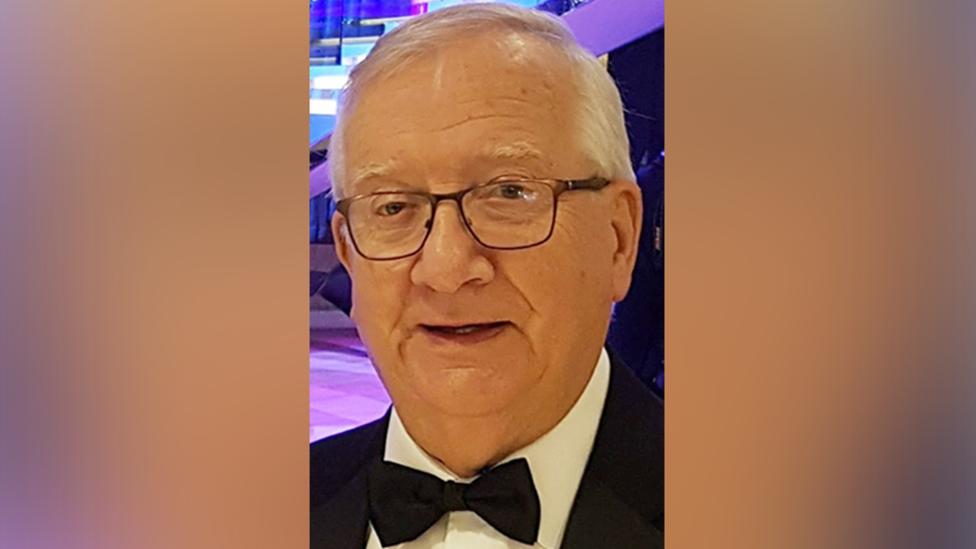Covid Inquiry: Bodies were treated like toxic waste, says daughter
- Published
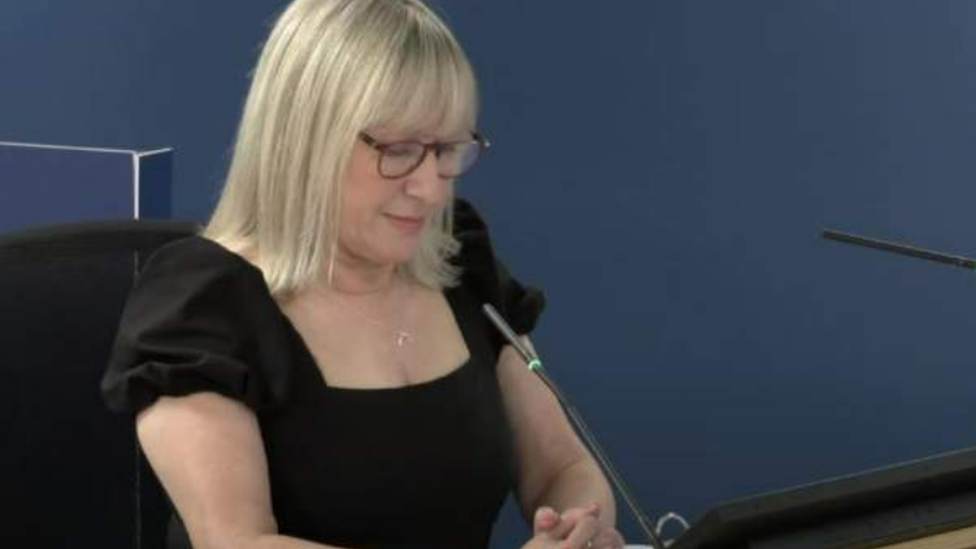
Anna-Louise Marsh-Rees appeared at the Covid inquiry on Tuesday
The bodies of people who died with Covid were treated like "toxic waste" and families were left in shock, a bereaved woman has told the inquiry.
Anna-Louise Marsh-Rees said her father Ian died "gasping for breath" after catching the virus while in hospital.
Ms Marsh-Rees, who leads Covid-19 Bereaved Families for Justice Cymru, said he was "zipped away", and his belongings put in a Tesco carrier bag.
She now wants to change the way deaths are handled by health boards.
Ian Marsh-Rees died after catching the virus while in hospital, aged 85.
His daughter said finding information regarding his care in hospital and how he became infected was "almost like an Agatha Christie mystery".
Ms Marsh-Rees told the Covid Inquiry her father was moved six times in eight days.
He was discharged on day eight, but the family was not told that he had been on a ward with patients who had tested positive for Covid.
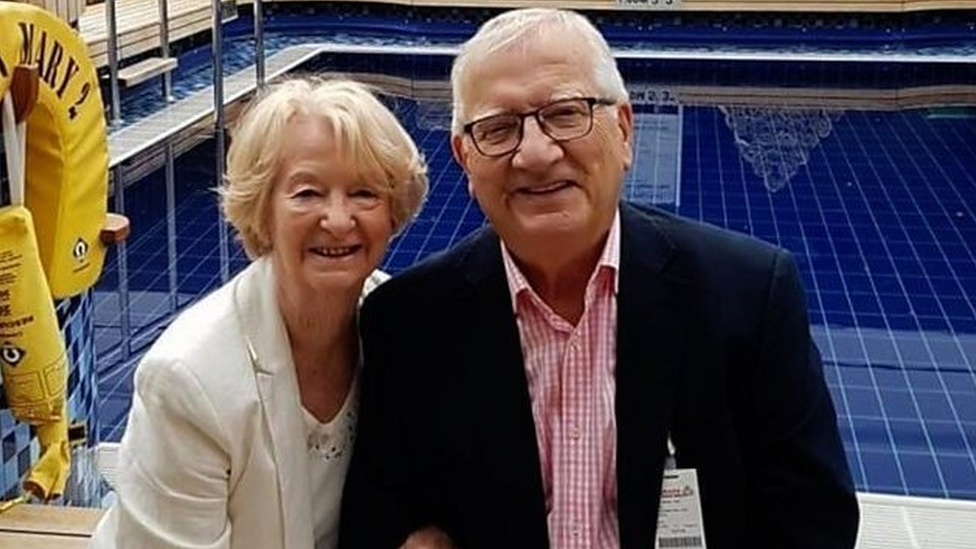
Ian Marsh-Rees, with his wife Valerie
"We subsequently found out that the ward had been closed down due to an outbreak but we weren't informed that he had been exposed.
"We subsequently found out after many many letters that there were actually 21 people with Covid on his non-Covid ward, 12 of whom died."
She said her mother continued to share a room with him and went on to contract Covid.
His health deteriorated rapidly after being discharged and her mother made 13 calls to the GP, with four out of hours visits.
She said no GP ever suggested he might have Covid, although she now knows his discharge notes said he had been exposed to Covid.
He was then readmitted to hospital and his condition worsened very quickly.
"It wasn't until we saw his notes some months later that we saw the DNA CPR (do not attempt CPR) placed on him, and this was without consultation with us," she said.
'It haunts us'
"It kind of haunts us all that… people used to say 'well they're in the right place' when they go to hospital. I'm not sure they would say that any more," Ms Marsh-Rees said.
She said it was important to prepare families before and support them after the death of a loved one, from palliative care to dignity in death.
"Once somebody with Covid dies, they are almost treated like toxic waste.
"They are zipped away and nobody told us that you can't wash them, you can't dress them, you can't do any of those things. The funeral, the ceremonies you can't do anything," she said.
"You couldn't sing at a funeral. We're Welsh, that's something you have to do.
"We are working with various people to understand what a good death is, my dad did not have a good death, most of our members' loved ones did not have a good death."
"When we left the hospital, we were given my dad's stuff in a Tesco carrier bag," she said.
"There's a whole generation, my mum's generation, who haven't got the mechanisms maybe I have to complain and question and they are heartbroken, really in shock.
"My mum cries daily and even though it's nearly three years but we'd like some change to happen in their lifetime," she said.
- Published18 July 2023
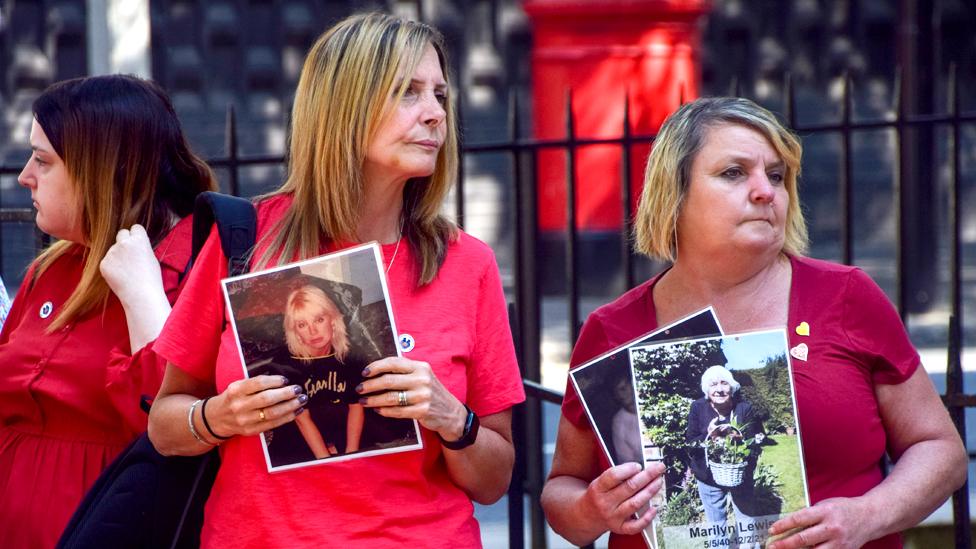
- Published9 July 2023
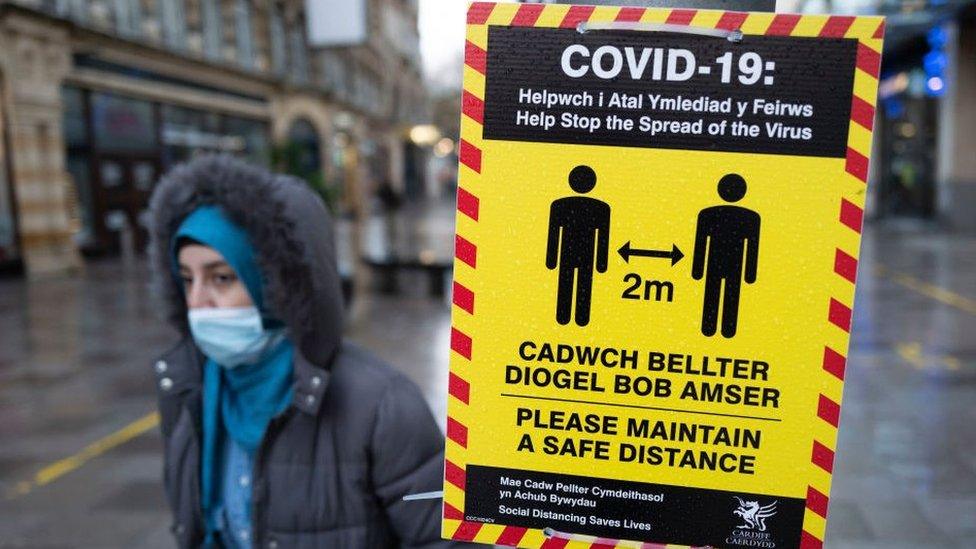
- Published20 August 2021
